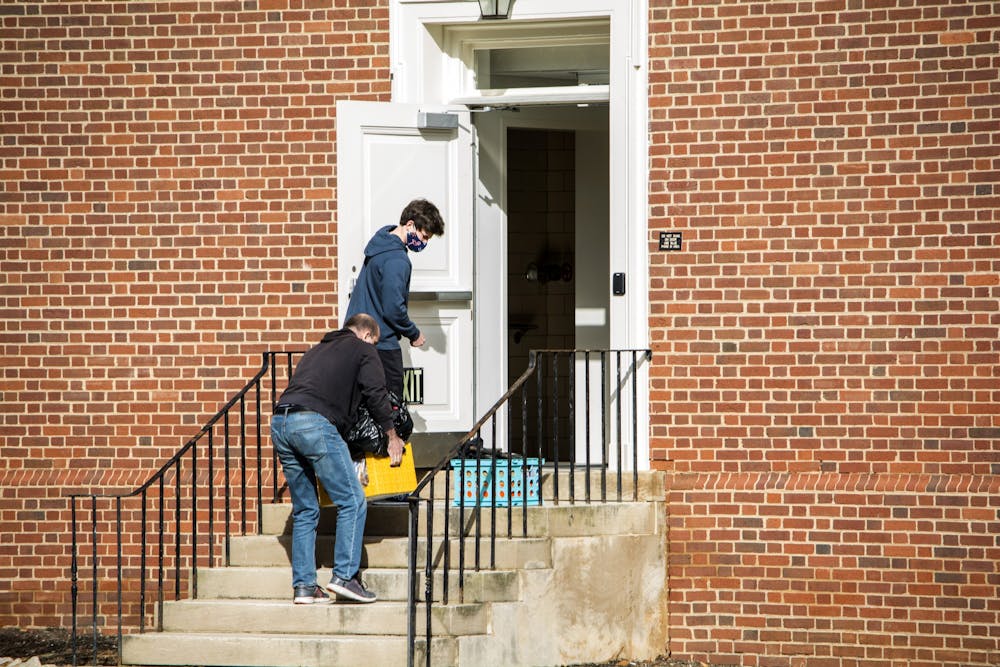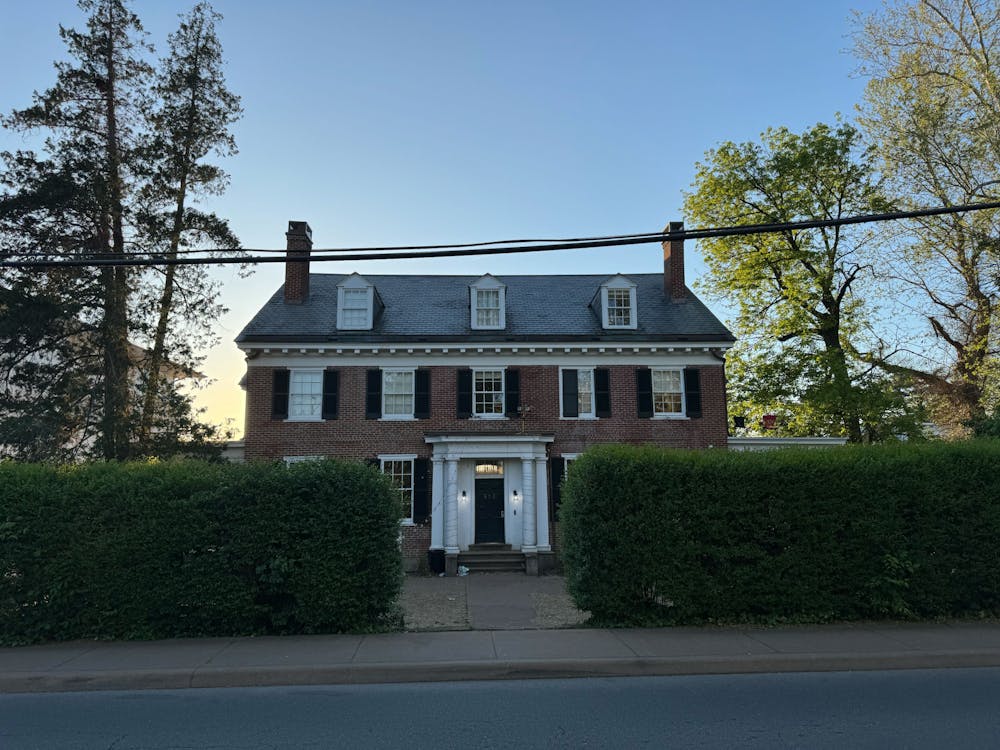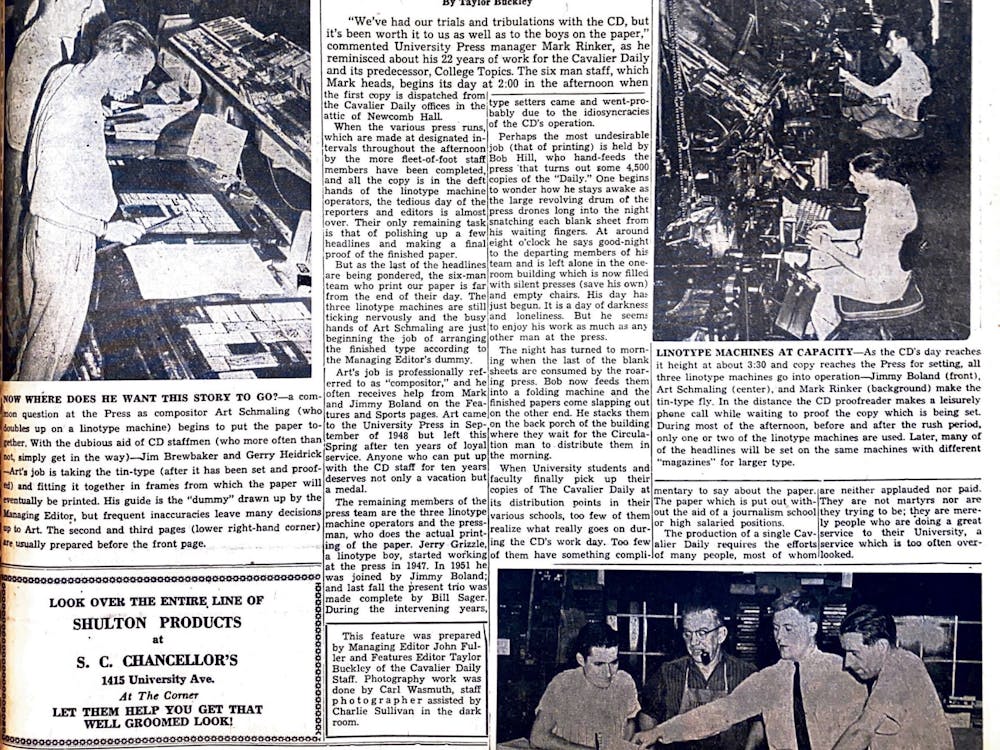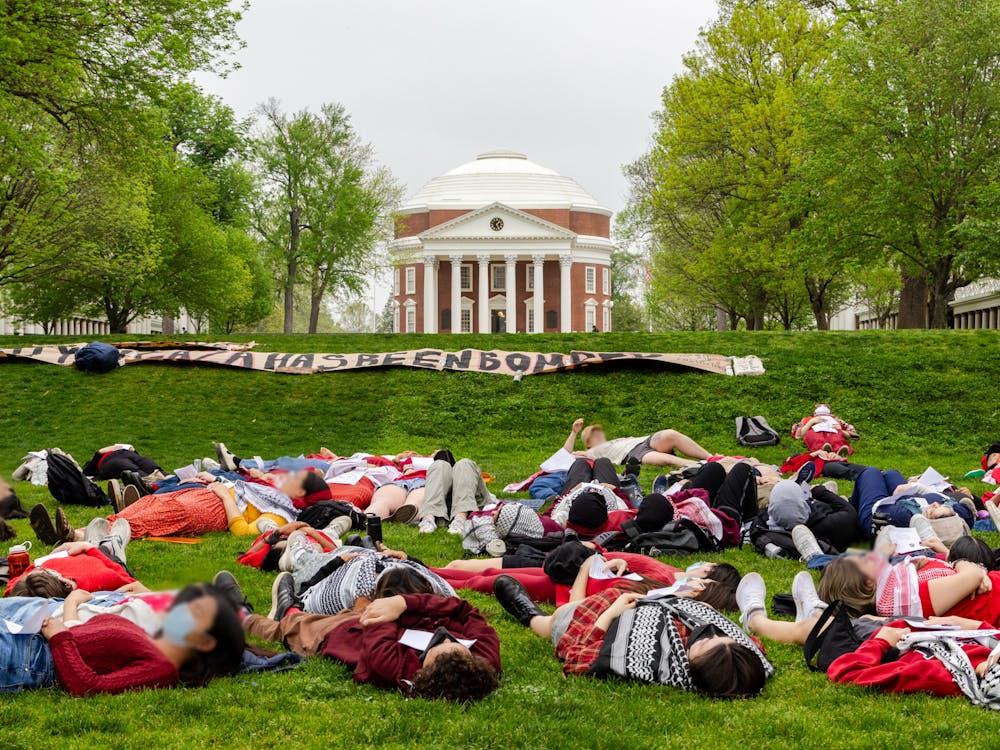Students traveled back to Charlottesville for spring semester move-in this week. Despite the increase in cases nationwide the past two months, students reported being excited to return, yet cautious of the health risks that remain a pressing concern. Move-in for students living in on-Grounds housing began Tuesday and continued through the weekend.
As was the case for most of the fall, most classes will be held virtually — approximately 27 percent of classes will offer an in-person component, the same percentage as the fall. According to University Spokesperson Brian Coy, the total number of classes with an in-person component is slightly lower than last semester, but the total number of in-person seats increased by 3 percent, meaning that more students will be able to have an in-person experience in the spring.
“The University is working to offer students the best experience possible, both in person and virtually, while taking the steps necessary to limit the spread of the virus and keep people healthy and safe,” Coy said.
A survey of undergraduate students conducted by The Cavalier Daily over winter break revealed that out of 930 respondents, over 80 percent feel safe returning to Grounds in the spring. However, 57 percent of those who remained at home for the fall still plan to stay at home for the spring. According to Coy, approximately 5,186 students plan to live in on Grounds housing this semester, an increase of 600 students from last semester.
Sisters Bridget and Molly Kennedy both plan to return to Charlottesville for the spring semester. Bridget Kennedy, a second-year College student, said that despite the increase in cases nationwide these past two months, she is still looking forward to returning to Grounds because she knows what to expect.
“I honestly feel a little bit better going into this semester than I did last semester because things are going to be a little bit different, but we're not going into it completely blind about what exactly is going to go down,” Bridget Kennedy said.
Both sisters cited the University’s mandatory weekly testing policy as a source of reassurance because every student will be able to keep track of their health and can expect the same of their peers.
“The real stressor for me throughout all semester and even now, it's not knowing whether or not I have it and also not knowing about other people around me,” Bridget Kennedy said. “I think that having the regular testing at least kind of gives all of us a baseline, and it can also help with catching things early that we might not even notice.”
Especially with the flu season in full gear, Bridget Kennedy said that it will be nice to know whether or not the various symptoms she experiences are COVID-19 or not. Molly Kennedy, a first-year College student, said that she also hopes weekly testing will eliminate some of the stress of meeting new people, if students are open about their results with one another.
Currently, the University’s testing program includes pre-arrival testing and mandatory weekly prevalence testing for all students, as well as wastewater testing at residence halls.
Ellen Yates, Student Council President and fourth-year College student, agreed that the increase in testing heading into the semester is reassuring, but emphasized the need to expand this access to University employees.
“It’s imperative that U.Va. considers its staff members — particularly those working on the front lines, such as custodial and dining hall employees — as it expands testing,” Yates said. “Students are part of a broad ecosystem at U.Va., and the health of our community is dependent on the health of all its members, particularly the most vulnerable.”
Faculty and staff are able to undergo voluntary asymptomatic testing, which is available during the walk-in hours listed on the BeSafe site. All students, faculty and staff are eligible for testing if they are symptomatic or have been in close contact with someone who tested positive for COVID-19.
In addition to testing, students will also be required to adhere to a six-person gathering limit for at least the first two weeks of the semester. Molly Kennedy said that even though she thinks she didn’t get the full “college experience” during her first semester at the University, she found safe ways to hang out with friends while abiding by the University’s public health guidelines.
“Gathering limits are a little tough being on Grounds and [in] dorms and everything, but it was just something that my friends and I learned to adapt to, especially when they pushed it down to five people,” Molly Kennedy said. “I think we'll be okay with six people.”
First-year College student Sunjal Patel said she feels pretty safe coming back to Grounds with the routine testing and COVID-19 safety guidelines, but expressed some concern about the dining halls, which have constantly been adapting to COVID-19 policies.
“I think U.Va. is doing a great job with the dining halls, but I would like to see more COVID-friendly options open up,” Patel said. “I’m sometimes forced to go into crowded dining halls because that’s the only open option left.”
Patel decided to return to Grounds for the spring because she has a few in-person classes and also wants to spend time with the friends she made in the fall. However, she mentioned that she doesn’t think the spring semester will be that different from the fall, with most classes still remaining online.
Yates stressed that it is “absolutely essential” that the University makes an effort to combat misinformation about who is still vulnerable to the virus. Particularly with vaccine distribution underway and students who tested positive for COVID-19 during the fall semester returning to Grounds, Yates said that she is concerned that some students may make “misinformed assumptions” about who can still contract the virus. As such, Yates said that it will be even more important that the University provides information surrounding this and that students pay attention and act accordingly.
“We are all tired of COVID fears and the isolation of social distancing and miss many of the activities we used to have access to, but we absolutely cannot become less concerned with following public health policies, even as we grow tired of them,” Yates said. “We have a responsibility to keep each other safe.”
Despite the changes to testing, gathering restrictions and increase in cases nationwide, Bridget Kennedy said that she is still looking forward to returning to Grounds and seeing friends again.
“I like being in Charlottesville for the community,” Bridget Kennedy said. “It just feels a little bit more tight knit to me, and not as isolating as being at home [like] the past two months has been.”
Similarly, Patel said that even though she might not be receiving the typical “college experience” she hoped to get as a first year, she’s happy to be able to return to Charlottesville at all.
“I feel like I’m definitely not getting THE college experience, but I am very grateful for getting A college experience,” Patel said. “I’m sad that I didn’t get to see some U.Va. traditions in person, like Lighting of the Lawn and watching sports, but I’m glad that they didn’t stop them altogether. I’m happy that they’re providing the virtual experience in the pandemic.”
No matter how much students may want college life to return to normal, Yates stressed that it is important that students remember how their actions affect not only the University, but the greater Charlottesville community.
“We must never forget that the privilege of our presence here is contingent on understanding that the U.Va. student community is inextricably enmeshed in the broader Charlottesville one, and BIPOC residents of Charlottesville continue to be some of the most vulnerable to COVID,” Yates said.
As of Friday, the University’s COVID-19 Tracker reports 153 active cases of COVID-19, 112 of which are students. 1,968 cases have been reported since Aug. 17 and there are currently 58 individuals hospitalized for COVID-19 at U.Va. Health.





